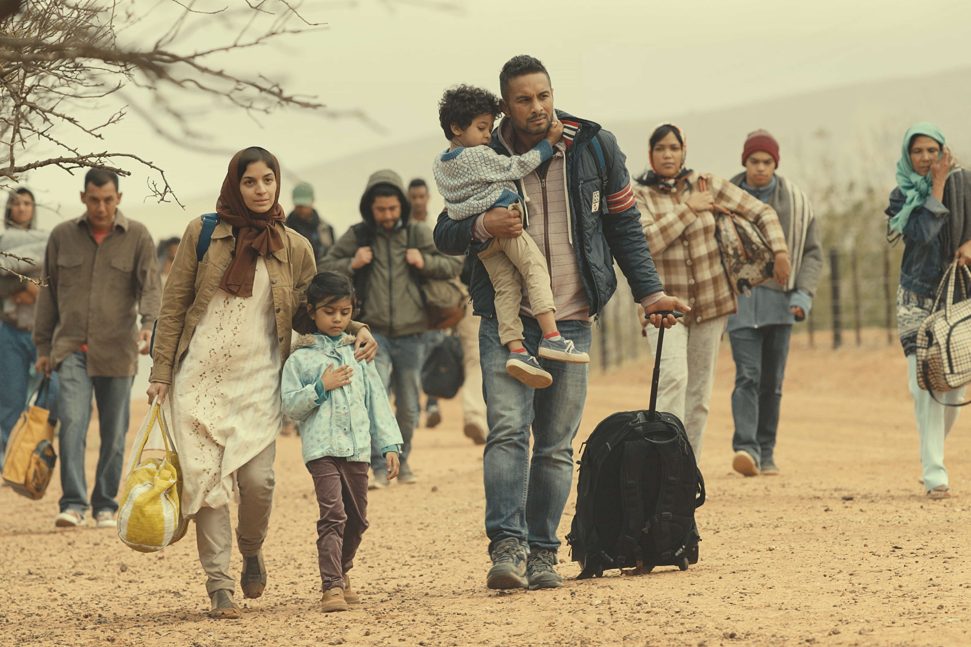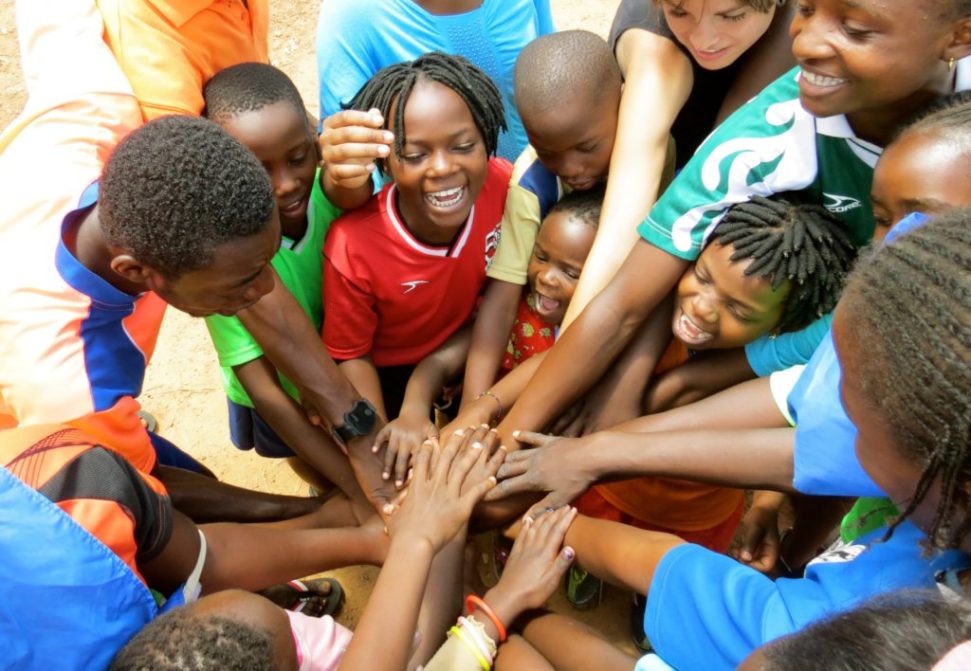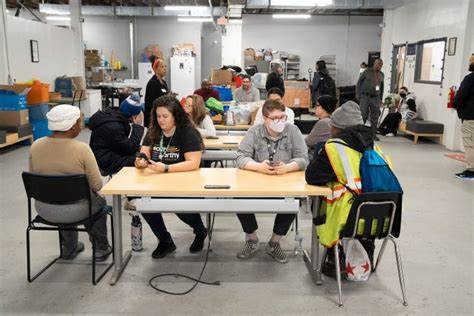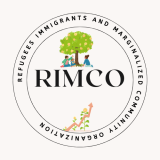Services
REFUGEES PROGRAMS
Trauma-Informed Care and Mental Health
Services: Offer trauma-informed care and mental
health services to refugees who have experienced violence, persecution, or
other traumatic events in their home countries or during their journey to
safety. Provide counseling, therapy, and support groups to help refugees heal
and cope with trauma-related issues.
Legal Rights Education and Advocacy Workshops:
Conduct workshops and information sessions to educate refugees about their
legal rights, responsibilities, and available resources in their new country.
Empower refugees to advocate for themselves and access legal assistance when
needed.
Women and Gender-Specific Services:
Develop programs and services specifically tailored for refugee women and
gender minorities, addressing their unique needs and challenges. This could
include reproductive health services, gender-based violence prevention
programs, and economic empowerment initiatives.
Community Resource Centers:
Establish community resource centers or hubs where refugees can access a wide
range of services, including language interpretation, referrals to local
agencies, computer and internet access, and community events. These centers can
serve as a one-stop-shop for refugees to get the support they need.
Cultural Preservation and Heritage Programs:
Celebrate and preserve the cultural heritage of refugees through cultural
events, festivals, and workshops that showcase their traditions, art, music,
and cuisine. Create opportunities for refugees to share their cultural
knowledge and skills with the broader community.
Child and Family Support Services:
Provide specialized support services for refugee families, including parenting
classes, child care assistance, and family counseling. Create safe and
supportive environments where refugee children and families can thrive and
build strong family bonds.
Entrepreneurship and Small Business
Development: Offer training, mentoring, and financial
assistance to refugee entrepreneurs who want to start their own businesses or
micro-enterprises. Support refugees in accessing capital, developing business
plans, and navigating the process of launching and sustaining a business.
Conflict Resolution and Peacebuilding Programs:
Facilitate conflict resolution workshops and peacebuilding initiatives to help
refugees resolve conflicts peacefully and build harmonious relationships within
their communities. Empower refugees to become agents of positive change and
reconciliation in their new environment.
Language Access Services:
Ensure language access for refugees by providing interpretation and translation
services in various languages to facilitate communication with service
providers, government agencies, and other institutions. Train bilingual
community members as interpreters to bridge language barriers and promote
inclusion.
Research and Advocacy Initiatives:
Conduct research on refugee issues, including displacement, integration, and
human rights, to inform advocacy efforts and policy recommendations.
Collaborate with academic institutions, research organizations, and advocacy
groups to amplify the voices of refugees and advance their rights and
interests.
Legal Assistance and Advocacy:
Provide legal aid services to refugees and immigrants to help them navigate
immigration processes, asylum applications, citizenship applications, and other
legal matters. This could include connecting them with pro bono lawyers or
legal clinics, as well as advocating for their rights within the legal system.
Language and Cultural Integration Programs:
Offer language classes (such as English as a Second Language - ESL) and
cultural orientation workshops to help refugees and immigrants integrate into
their new communities. These programs can include language tutoring, cultural
sensitivity training, and orientation to local customs and resources.
Job Training and Employment Services:
Develop job training programs and provide resources to help refugees,
immigrants, and marginalized community members gain employment skills and find
job opportunities. This could involve resume writing workshops, interview
preparation sessions, vocational training, and job placement assistance.
Housing Assistance:
Assist refugees, immigrants, and marginalized individuals and families in
finding safe and affordable housing options. Provide support with rental
assistance, housing advocacy, and landlord-tenant mediation to prevent
homelessness and ensure access to stable housing.
Healthcare Access and Wellness Programs:
Partner with healthcare providers and community organizations to ensure that
refugees, immigrants, and marginalized communities have access to healthcare
services. Offer health education workshops, mental health support groups, and
referrals to medical providers who offer culturally competent care.
Youth and Family Support Services:
Develop programs to support the unique needs of refugee, immigrant, and
marginalized youth and their families. This could include after-school
programs, tutoring services, mentoring programs, and family counseling services
to promote academic success, social integration, and family stability.
Community Outreach and Advocacy:
Engage in community outreach efforts to raise awareness about the issues facing
refugees, immigrants, and marginalized communities. Advocate for policy changes
and social justice initiatives that promote inclusion, equity, and access to
resources for all community members.
Emergency Relief and Crisis Support:
Provide emergency assistance and crisis intervention services to individuals
and families facing immediate needs, such as food insecurity, homelessness, or
domestic violence. This could involve operating a hotline, distributing
emergency supplies, and coordinating with other community organizations to
provide support.
Empowerment and Leadership Development:
Offer workshops, seminars, and leadership training programs to empower
refugees, immigrants, and marginalized community members to become advocates
for themselves and their communities. Foster leadership skills, civic
engagement, and community organizing to promote positive change and social
justice.
Cultural Exchange and Community Building
Events: Organize cultural exchange events,
festivals, and community gatherings to celebrate diversity and foster
cross-cultural understanding among refugees, immigrants, and members of the
broader community. These events can promote dialogue, friendship, and collaboration
across cultural and linguistic boundaries.


YOUTH PROGRAMS/ SERVICES
Educational Support Programs:
Offer tutoring, homework help, and academic enrichment programs for refugee
youth to support their educational development. This can include assistance
with language learning, homework assignments, and preparation for standardized
tests.
Mentoring and Counseling Services:
Pair refugee youth with mentors who can provide guidance, support, and positive
role modeling. Additionally, offer counseling services to address the unique
challenges and trauma that refugee youth may face, including adjustment
difficulties, cultural adaptation, and mental health concerns.
Cultural Orientation Workshops:
Organize workshops and cultural orientation sessions to help refugee youth
navigate their new environment, understand local customs and traditions, and
develop a sense of belonging in their new community.
Life Skills Training:
Provide workshops and training sessions to teach refugee youth essential life
skills, such as financial literacy, communication skills, conflict resolution,
time management, and decision-making. These skills can empower them to become
self-sufficient and successful in their new environment.
Recreational and Extracurricular Activities:
Organize recreational activities, sports leagues, arts and crafts classes, and
other extracurricular programs to engage refugee youth in positive and
constructive activities, promote socialization, and build friendships with
their peers.
Career Exploration and Job Readiness Programs:
Offer career exploration workshops, job shadowing opportunities, and
internships to help refugee youth explore different career paths and gain
practical work experience. Provide assistance with resume writing, job search
strategies, and interview preparation to prepare them for future employment
opportunities.
Youth Leadership Development:
Develop leadership training programs and youth councils to empower refugee
youth to become leaders within their communities. Provide opportunities for
them to participate in community service projects, advocacy initiatives, and
leadership workshops to develop their leadership skills and civic engagement.
Family Support Services:
Offer support services and resources to refugee families to strengthen family
relationships and promote positive parenting practices. Provide parenting
workshops, family counseling, and referrals to community resources to support
the overall well-being of refugee youth and their families.
Peer Support Groups:
Facilitate peer support groups for refugee youth to connect with others who
have shared experiences and build a sense of camaraderie and support. These
groups can provide a safe space for refugee youth to share their feelings, seek
advice, and receive encouragement from their peers.
College and Career Planning Assistance:
Provide assistance with college applications, financial aid, and scholarship
opportunities for refugee youth interested in pursuing higher education. Offer
workshops on college preparation, career exploration, and academic planning to
help them achieve their educational and career goals.
SINGLE MOM’S SERVICE
Parenting Support Groups: Facilitate support groups specifically for single mothers,
providing a safe and nurturing environment where they can share experiences,
seek advice, and receive emotional support from peers who understand their
unique challenges.
Financial Counseling and Assistance: Offer financial counseling services to help single mothers
manage their finances, create budgets, and plan for the future. Provide
assistance with accessing financial aid, government benefits, and resources for
housing, childcare, and other essential needs.
Childcare Services: Provide affordable or subsidized childcare services to single
mothers, allowing them to pursue education, employment, or other opportunities
while ensuring their children are well cared for in a safe and nurturing
environment.
Job Training and Employment Assistance: Develop job training programs specifically designed for single
mothers, equipping them with skills and resources to enter or re-enter the
workforce. Offer assistance with resume writing, job search strategies,
interview preparation, and job placement services.
Education and Career Development: Provide opportunities for single mothers to pursue higher
education or vocational training, offering scholarships, tuition assistance,
and academic support services to help them achieve their educational and career
goals.
Housing Assistance: Assist single mothers in finding safe and affordable housing
options for themselves and their children. Provide support with rental
assistance, housing advocacy, and landlord-tenant mediation to prevent
homelessness and ensure access to stable housing.
Legal Aid and Advocacy: Offer legal assistance and advocacy services to single
mothers, helping them navigate legal issues related to family law, child
custody, child support, domestic violence, immigration, and other relevant
matters.
Health and Wellness Programs: Provide access to healthcare services, mental health
counseling, and wellness programs specifically tailored for single mothers.
Offer workshops on stress management, self-care, nutrition, and healthy
lifestyle choices to promote overall well-being.
Community Building and Peer Networking: Facilitate opportunities for single mothers to connect with
each other, build friendships, and create a supportive community network.
Organize social events, workshops, and parenting classes to foster connections
and promote mutual support.
Empowerment and Leadership Development: Offer empowerment workshops and leadership training programs
to help single mothers develop confidence, resilience, and leadership skills.
Provide opportunities for them to advocate for themselves and their families,
participate in decision-making processes, and become agents of change within
their communities.

F.A.Q.
Most asked question about RIMCO
RIMCO offers a range of services tailored to the needs of refugees, immigrants, and marginalized communities, including language assistance, legal aid, educational resources, cultural integration programs, and more.
There are several ways to get involved with RIMCO, including volunteering your time, making donations, spreading awareness about our cause, and participating in fundraising events.
RIMCO’s services are available to refugees, immigrants, and members of marginalized communities who are in need of support and assistance in their journey towards integration and empowerment.
Yes, RIMCO is a registered non-profit organization dedicated to serving refugees, immigrants, and marginalized communities with compassion and integrity.
RIMCO takes the confidentiality and privacy of our clients very seriously. We have strict policies and procedures in place to safeguard the personal information and privacy of those we serve.

